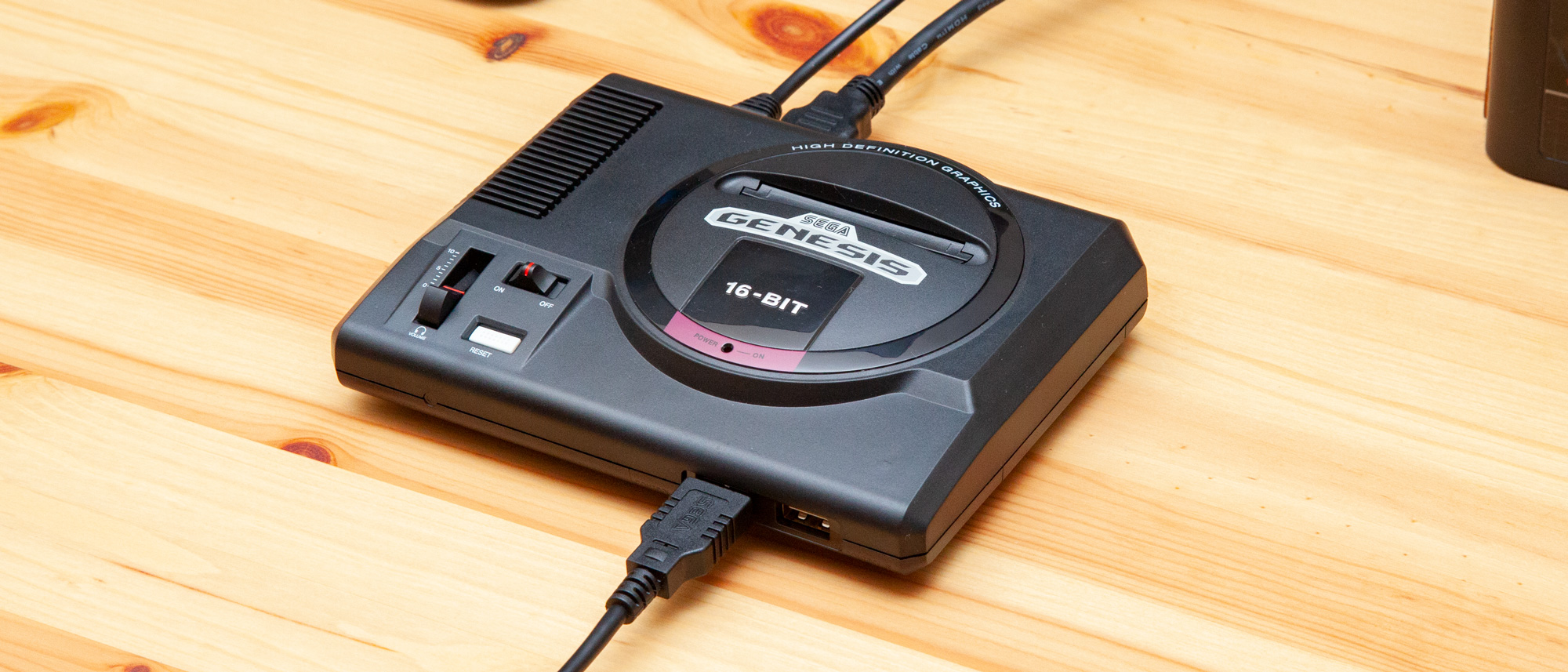Tom's Guide Verdict
Between its massive roster of classics, high-quality emulation, modern conveniences and extensive feature set, the Genesis Mini doesn't just delight fans of Sega's 16-bit hardware — it sets a new standard for retro consoles.
Pros
- +
Fantastic value
- +
Accurate emulation
- +
Lots of display options
- +
Great build quality
- +
Comes with two controllers
- +
Convenient user experience
Cons
- -
3-button pads not the best for fighters
- -
No rewind function
Why you can trust Tom's Guide
I honestly never thought I'd see a console like the Sega Genesis Mini.
Blame it on the years of shoddy, licensed plug-and-play clones. While Nintendo sparked a trend of building lovingly crafted, expertly curated tributes to classic hardware, Sega signed its name away to half-baked approximations that repeatedly dismantled its own storied legacy.
So you'd be forgiven for expecting the same from the Genesis Mini. Even after retro specialists M2 were confirmed to be spearheading the project, there was always this nagging feeling that something would go wrong. The dream of a Genesis emulator box developed with the same level of quality befitting of one of the studio’s Sega Ages ports just seemed too good to be true.
Today, I’m relieved to say it’s not. The Genesis Mini arrives Sept. 19 for $79 and comes with a whopping 42 games. Sega fans have endured a long road to get here, though I think they’ll find their patience has been worth the wait. Because this isn’t just the best Genesis re-release the company has ever produced — it’s the new benchmark for retro consoles, period.
What you're getting
The Genesis Mini library spans eight years of the 16-bit console's life span, from Alex Kidd in the Enchanted Castle to the curious port of Virtua Fighter 2 that Sega quietly pushed out in 1997 so fans who hadn't yet upgraded to the Saturn wouldn't feel left in the lurch.
But that's not all you're getting here. Sega thoughtfully included the English-translated version of Monster World IV that made its way to the Wii Virtual Console back in 2012. And to round out the roster, there are two new Genesis-style ports of Darius and Tetris, derived from their arcade counterparts. Tetris in particular is admittedly a little rough, and certainly no replacement for Tetris Effect — though it’s the thought that counts.
Break it down in terms of price, and you're paying less than $2 for each game. That's a hell of a bargain, though Sega fans have been burned by retro hardware more than a few times before. The company's previous attempts at licensing heaps of Genesis games for TV consoles have traditionally wound up in clearance baskets at Walgreens, thanks to an unholy combination of thoughtless software and irredeemably shoddy hardware.
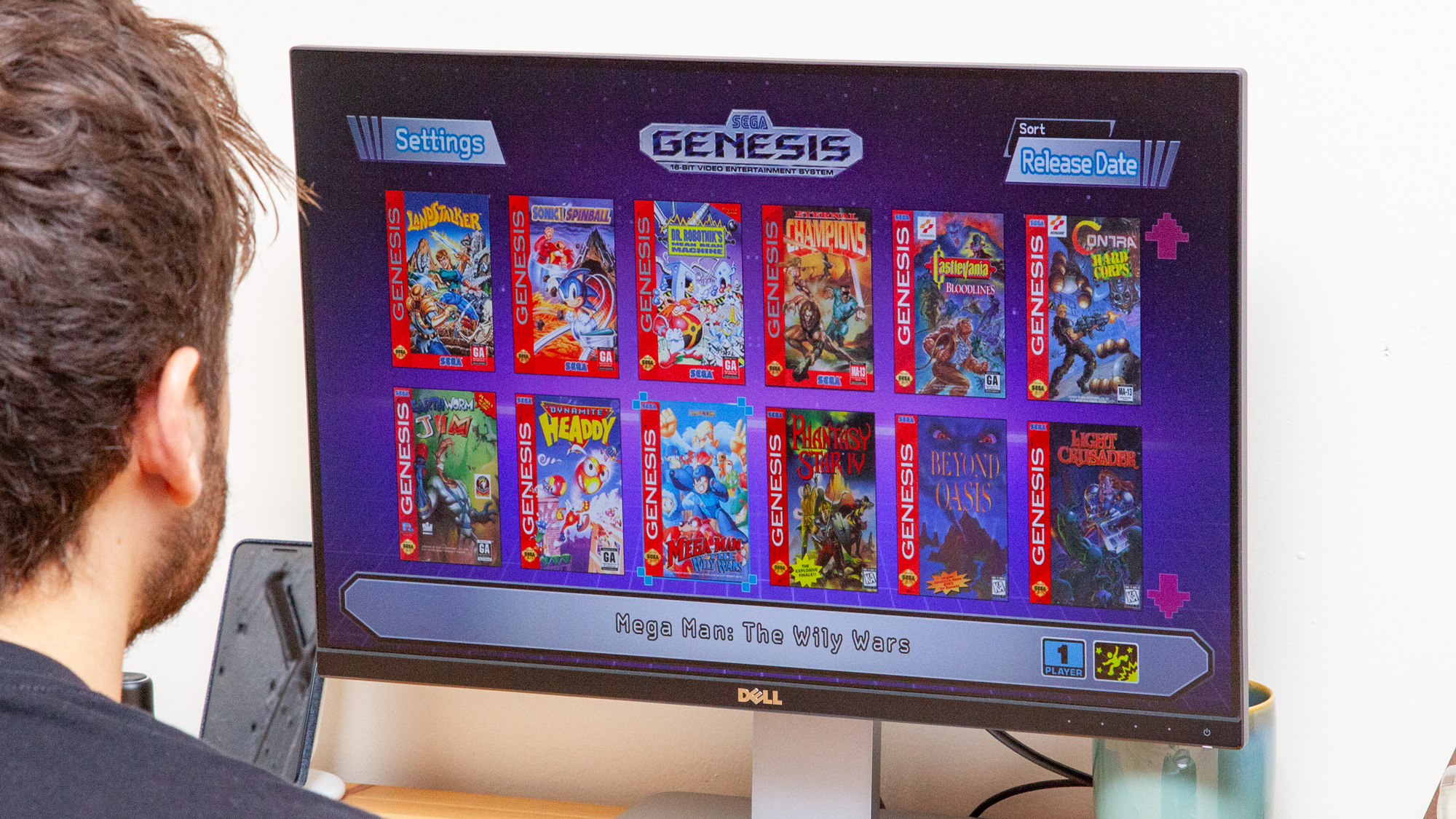
Sonic the Hedgehog
Sonic the Hedgehog 2
Sonic Spinball
Dr. Robotnik’s Mean Bean Machine
Shinobi III
Streets of Rage 2
Castlevania: Bloodlines
Ecco the Dolphin
Space Harrier II
Shining Force
ToeJam & Earl
Comix Zone
Virtua Fighter 2
Altered Beast
Gunstar Heroes
Castle of Illusion
World of Illusion
Thunder Force 3
Super Fantasy Zone
Earthworm Jim
Contra: Hard Corps
Landstalker
Mega Man: The Wily Wars
Street Fighter II: Champion Edition
Ghouls ’n Ghosts
Alex Kidd in the Enchanted Castle
Beyond Oasis
Golden Axe
Phantasy Star IV
Vectorman
Wonder Boy in Monster World
Tetris
Darius
Road Rash II
Strider
Alisia Dragoon
Kid Chameleon
Monster World IV
Eternal Champions
Columns
Dynamite Headdy
Light Crusader
That makes it all the more special that Sega's turned to retro mavens M2 to oversee the Genesis Mini's development. M2 has, of course, lent its talents to rebuilding a number of titles in Sega's back catalog over the years, so the publisher couldn't have found a better dancing partner to look after its Genesis hits.
The console offers a diverse range of experiences across various genres, and each runs as smoothly as you’d hope. I played chicken with oncoming traffic in Road Rash II; linked together mad chains in Dr. Robotnik's Mean Bean Machine; quickly discovered I'm horrendous at weaving between stalagmites and enemy fire in Darius; and bludgeoned thugs and goons with lead pipes in Streets of Rage 2. Speaking of Streets of Rage, fans will be pleased to know its composer, Yuzo Koshiro, has contributed a new song for the Genesis Mini's home screen. In fact, it was written using the same Yamaha YM2612 sound chip Sega employed in the original hardware.
The game list won't make everyone happy, but then, what retro console's roster ever could? Although I might personally lament the Genesis Mini's lack of timeless Sega racers like Out Run, Super Hang-On and Super Monaco GP, and I can already hear the distant cries mourning Battletoads and Aladdin's absence, this is a pretty good slice of the Genesis experience we're getting here. Even Disney’s Castle and World of Illusion titles are on the roster, which is mighty impressive from a licensing standpoint. The PlayStation Classic, this most certainly is not.
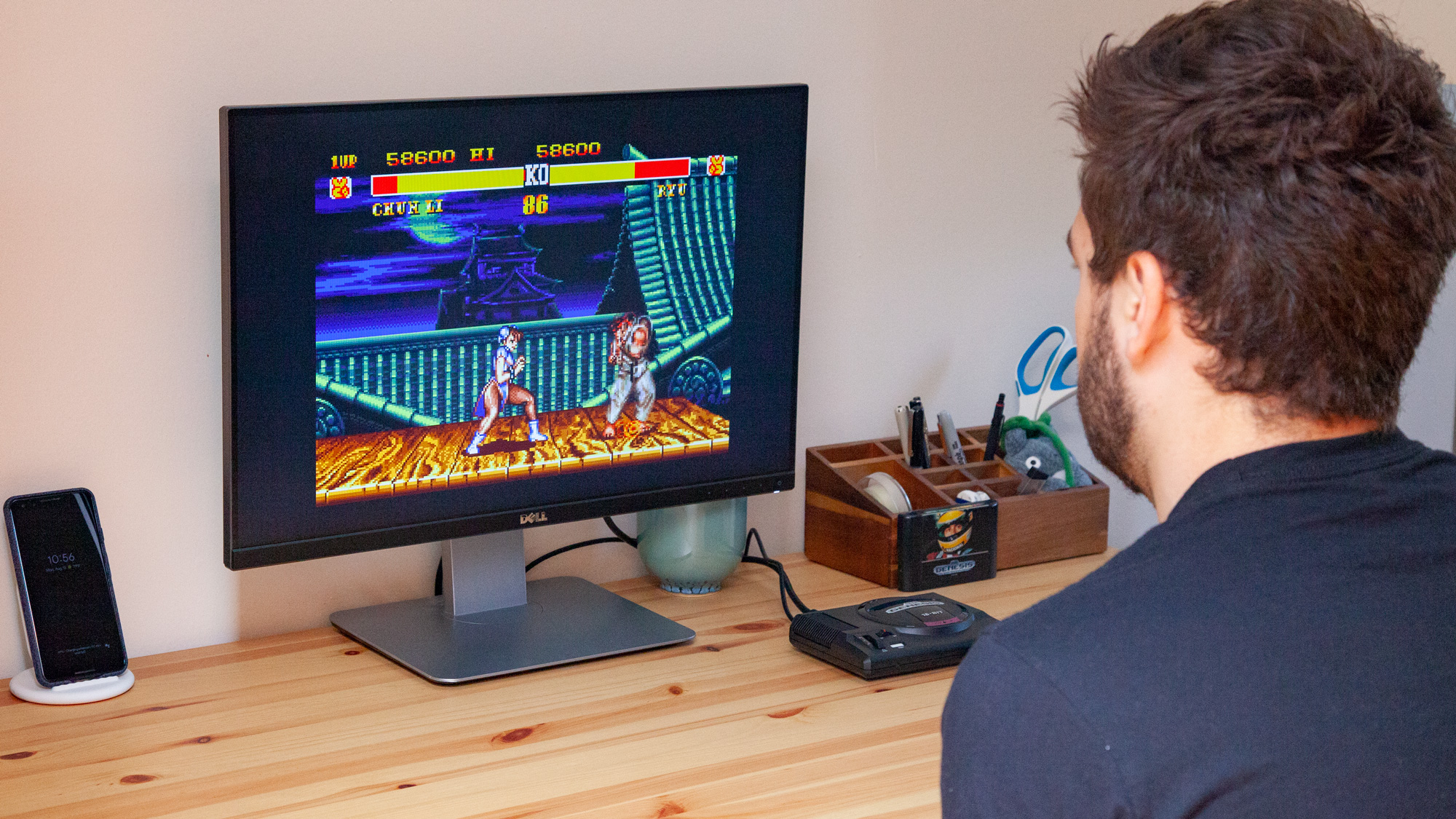
Polished to perfection
If your 16-bit system of choice is the SNES, there's likely nothing the Genesis Mini could do to persuade you to side with Sonic in any future schoolyard tussles. Plug-and-play consoles are about the games and how well they play, first and foremost. Everything else is secondary.
That said, I'm starting to think Sega may have Nintendo licked when it comes to general convenience and user experience here. The cables on the Genesis Mini's controllers are 6 feet long — 1 foot longer than those on the SNES Classic's pads, and twice as long as what you get with the NES Classic. The reset button on the console pulls up the system start menu as you'd expect, which allows you to save and load up to four states. However, you can also access the same menu by holding the start button on your controller for 5 seconds. Thank heavens.
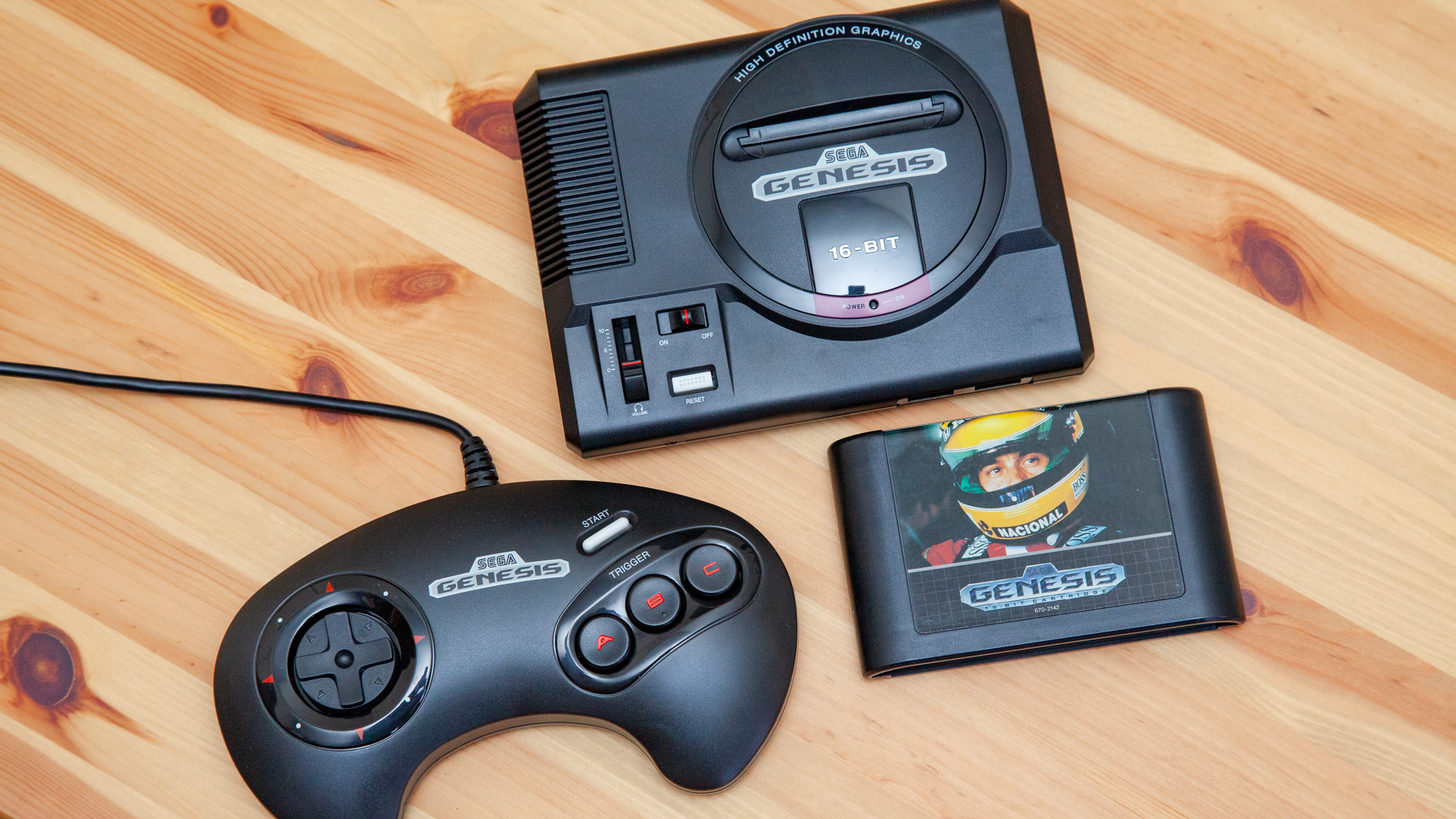
My favorite thing about the Genesis Mini by far are the secrets lurking within the 42-game catalog.
Hardcore retro fans will appreciate the inclusion of 4:3 and 16:9 display modes in the Genesis Mini's options, as well as a CRT filter that makes everything look all hazy and scanline-like, if you're into that sort of thing. M2 supposedly designed the 16:9 mode so that it crops into gameplay (rather than horizontally stretching the display field) and repositions HUD elements accordingly to preserve the original graphical proportions of each game. It's an admirable feat demonstrative of the studio's reputation for polish — though I probably never would have noticed had I not been told about it first.
But my favorite thing about the Genesis Mini by far are the secrets lurking within that 42-game catalog. We already knew Sega was building three variants of the console: one for North America and Europe, one for Japan, and one for Korea and China. All regions share some titles, like Gunstar Heroes, for example, though some have exclusives — like Vectorman and ToeJam & Earl, which are only on Western units.
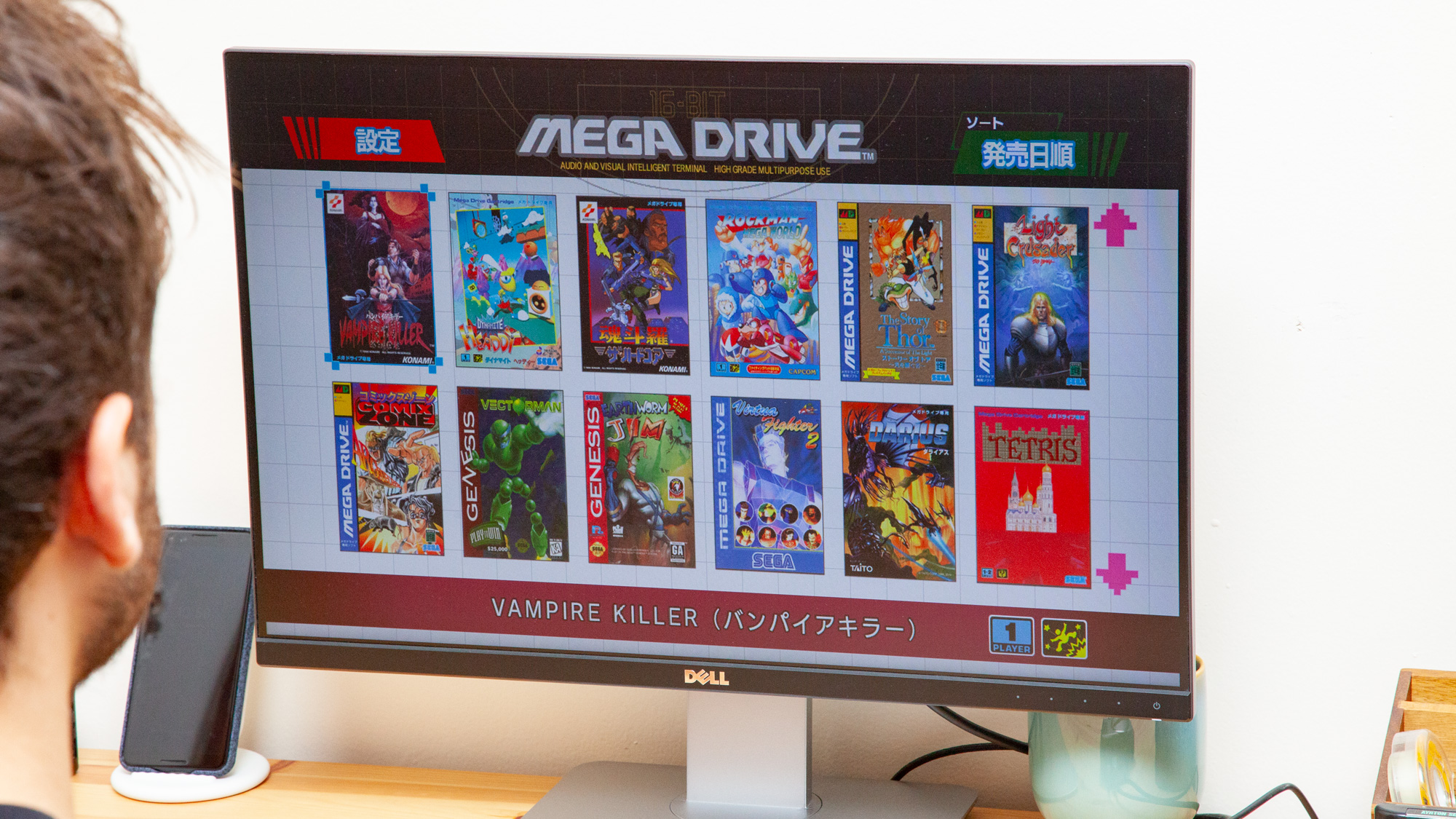
Hidden in the Genesis Mini's settings menu is a fairly innocuous language option. Changing your system's language to something aside from the default won't give you access to that region's selection of games, though it will change the design of the home screen and, in some cases, even the game ROMs to match.
This is a really cool little trick, because it allows you to experience slightly different versions of titles you may already be familiar with. For example, most European gamers have probably never played the grislier, uncensored version of Castlevania: The New Generation, titled Vampire Killer in Japan. Likewise, if you never cared much for Sonic but happen to love Puyo Puyo, changing the system language to Japanese transforms Mean Bean Machine into its original, hedgehog-free guise. (As for finding a way to play Kirby's Avalanche, you're on your own.)
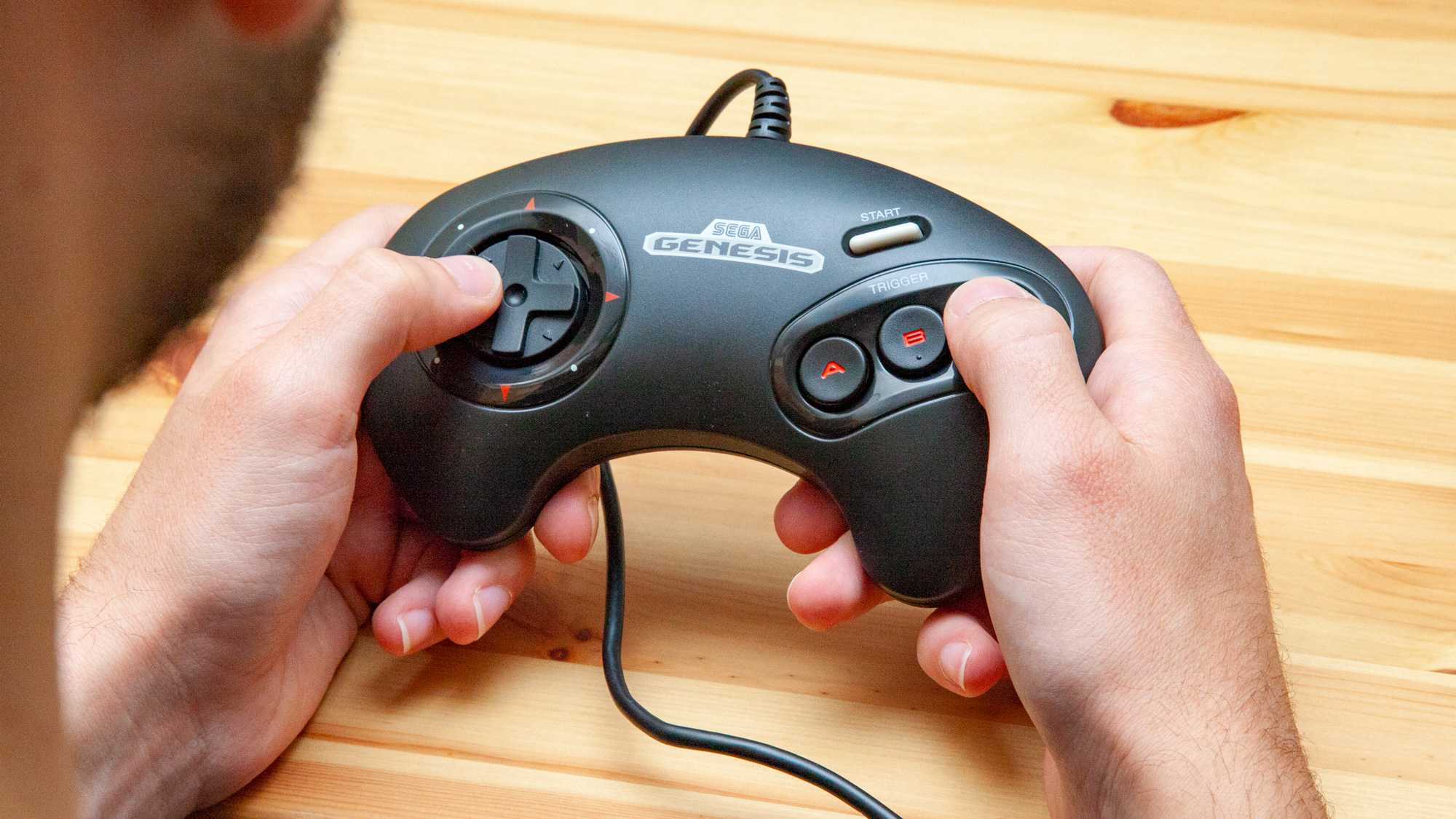
If I have a small gripe to lodge against the Genesis Mini, it concerns one notable feature you won’t find on the console. Unlike the SNES Classic and Nintendo’s just-released SNES titles on its Switch Online service, Sega’s little box of nostalgia lacks a rewind function. That means you can’t backpedal frame-by-frame should you make a mistake (and you certainly will in Darius). Purists assuredly won’t shed a tear for this omission, though I leaned on rewind heavily when I tackled the SNES Classic’s tougher titles, like Contra 3 — so I’m certainly feeling its absence here.
Hardware your memories deserve
There's not much to say about the Genesis Mini's industrial design — though in this case, that's not a bad thing. It's literally a shrunken Genesis (approximately 55 percent smaller), with all the proper markings, printed text and logos. In fact, the headphone volume slider moves and the cartridge slot flaps open and shut, even though neither serves any purpose.
The build quality here is on a par with the precedent Nintendo set with its own classic hardware. The attention to detail extends to the Genesis Mini's pair of controllers as well, which look and feel precisely like their original counterparts, yet have USB connectors. (They also work on PC — I've tried.)
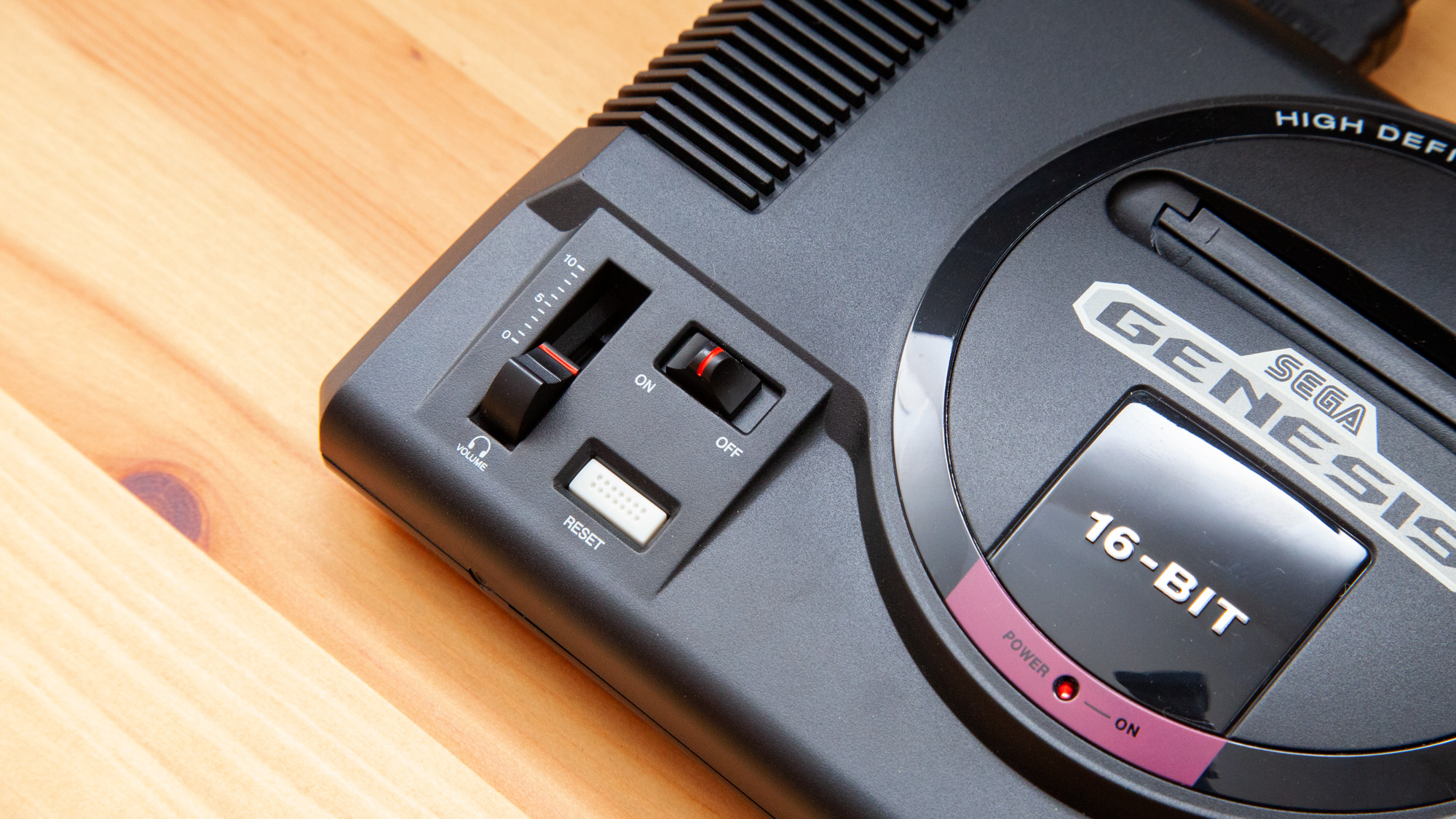
Unfortunately, these controllers are of the 3-button variety, which is quite frustrating when playing Street Fighter II: Champion Edition or Virtua Fighter 2. Fortunately, you can nab one of Retro-Bit's officially licensed pads as a replacement if you wish, and it'll only set you back $20. (In Japan, the Mega Drive Mini actually ships with 6-button controllers. Weird.)
Bottom Line
The Genesis Mini isn’t merely an adorable chunk of plastic; it’s as close to perfect as any retro console I’ve ever used. In fact, aside from the aforementioned controller choice for Western markets, as well as the lack of rewind, I’m struggling to think of areas in which Sega could have improved here. (And the controller oversight is easy enough to correct, if you spend a little extra.)
It’s the send off and greatest hits compilation the Genesis always deserved. You get a large, varied roster of classics, M2's peerless emulation and several quality-of-life considerations absent in Nintendo's retro hardware, all stuffed inside a tiny box any Sega fan would be proud to keep on their desk. You can't argue with any of that.
Analogue's Mega Sg certainly offers a more accurate, comprehensive way to revisit Sega's 16-bit golden era for the most serious retro enthusiasts, but it also costs just shy of $200. Regarding convenience and value, the Genesis Mini is unparalleled right now. And it forces Nintendo, Sony, Konami, SNK, and anyone else interested in revisiting gaming’s golden era to step it up.
Adam Ismail is a staff writer at Jalopnik and previously worked on Tom's Guide covering smartphones, car tech and gaming. His love for all things mobile began with the original Motorola Droid; since then he’s owned a variety of Android and iOS-powered handsets, refusing to stay loyal to one platform. His work has also appeared on Digital Trends and GTPlanet. When he’s not fiddling with the latest devices, he’s at an indie pop show, recording a podcast or playing Sega Dreamcast.
